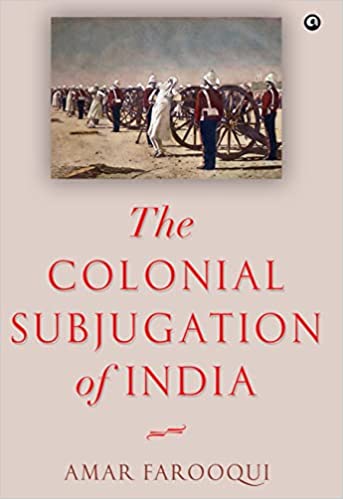THE COLONIAL SUBJUGATION OF INDIA (HB)
no information available
British ascendancy in the world was preceded by over two centuries of colonial intervention in Asia during the course of which the strength and independence of sovereign nations and polities in the region were undermined—their economies subjugated, their military strength weakened, and their societies penetrated. In The Colonial Subjugation of India, eminent historian Amar Farooqui tells the story of the formation of the British empire in India and presents a minutely detailed narrative of the violence inflicted on the people of this part of the world to conquer it and the instruments of coercion that were put in place to rule over it. Beginning with the arrival of Portuguese, Dutch, French, and, finally, British mercantile ships in the Indian Ocean throughout the sixteenth and seventeenth centuries, this book charts the course of Britain’s rise as the dominant colonial power in the Indian subcontinent. It traces India’s history of anti-colonial resistance starting with the Battle of Plassey in 1757 and explains how the country attained freedom through a long and sustained struggle extending over nearly two centuries; how the revolt of 1857 was an important moment in this struggle; and how the national liberation movement of the period between the 1920s and 1947 culminated in independence on 15 August 1947, representing the triumph of anti-colonial Indian nationalism over British imperialism. An important and groundbreaking study of a crucial period of modern Indian history, The Colonial Subjugation of India attempts to show that, no matter what traditional accounts of British colonialism and monarchy may state, empire was anything but benign. ... Read more Read less











